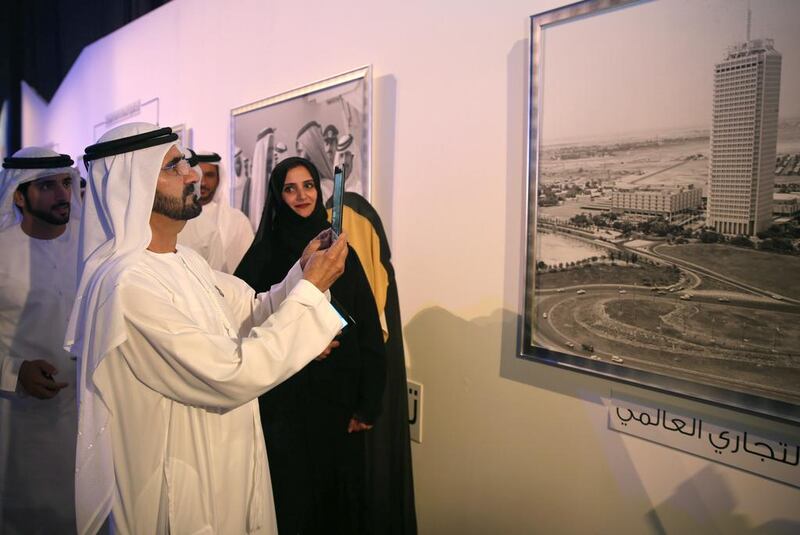DUBAI // Free Wi-Fi on public transport, charging stations for electric cars and an application that steers drivers to available parking are among initiatives to turn Dubai into a “smart city” within three years.
Sheikh Mohammed bin Rashid, Vice President and Ruler of Dubai, reviewed plans from government departments at a conference in the city on Wednesday.
They included Wi-Fi access in all parks, buses and taxis, and infrastructure for the charging stations.
The Roads and Transport Authority said it would introduce a parking system that told drivers as they entered a street if there were parking spaces available.
And the Dubai Electricity and Water Authority (Dewa) will install smart meters for customers to monitor their power and water use in real time.
“Six months ago we announced a new chapter for Dubai,” said Mohammed Al Gergawi, Minister of Cabinet Affairs.
“Sheikh Mohammed said the Government and the city must be transformed into a smart city, and he gave us three years to accomplish this feat.
“We have to transform thousands of government electronic services and make them smart services that everyone can access from anywhere on their phones.
“The challenge is to create awareness among the public when we launch these services for them to be able to use them easily and effectively.”
Services such as free Wi-Fi are available in European and North American cities, but Dubai’s youth gives it an edge in developing the smart city idea further, and with greater ease.
“What many people don’t realise is that the starting point for Dubai is much easier. Most of Dubai is already smart,” said Amr Salem, managing director for Cisco’s smart cities division.
“The infrastructure here is much more advanced than many cities that call themselves smart.”
Sheikh Mohammed said the plan was “a new era for the improvement and development of quality of life”.
“Our ambition is that this project touches the life of everyone in our country, of every mother in her house, of every employee in his work, of every investor in his project, of every child in his school, and doctor in his clinic,” he said, according to the state news agency Wam.
“Our goal is to bring about happiness to all.”
Mattar Al Tayer, chairman of the RTA, said as well as having internet access, commuters would be able to view real-time schedules and timetables for public transport.
“All major bus stations will have screens that give live data to inform you when the next bus will arrive,” Mr Al Tayer said.
“We are also working on an application that will provide live traffic monitoring so that you may plan your journey before you even leave your home.
“But the most important of these new initiatives will be where we get public participation in designing and organising the transport network.
“We will have direct communication and cooperation with the public, who will tell us how to improve the transport network, be it public transport or roads, in their area.”
Dewa announced plans to go green by installing solar panels on its buildings.
“Solar panels will connect to the grid and reduce our consumption of power,” said Saeed Al Tayer, chief executive of the authority.
“We plan to install infrastructure to set up charging points for electric cars. This will help to make our city a cleaner, greener place for everyone to live.”
Sheikh Mohammed tweeted: “A smart power grid will let households generate and sell their own solar energy.”
But the key to making Dubai smart is being able to use the technology to its full potential, said Mr Salem.
“It’s no good having Wi-Fi across the whole city if all you are using it for is YouTube,” he said.
“You have to leverage the Wi-Fi for the buses, the traffic, the police, garbage collections.
“It has to serve all the different agencies together, and that is the challenge I see – having collaboration across all departments. Technology is only an enabler, not an endgame.”
Asked if three years is a realistic deadline for Dubai’s bid to become a smart city, Mr Salem said: “There is no deadline when you look at a smart city.
“It is not three years, 10 years or even 100 years. Smart is not a state, it is a journey.”
malkhan@thenational.ae






